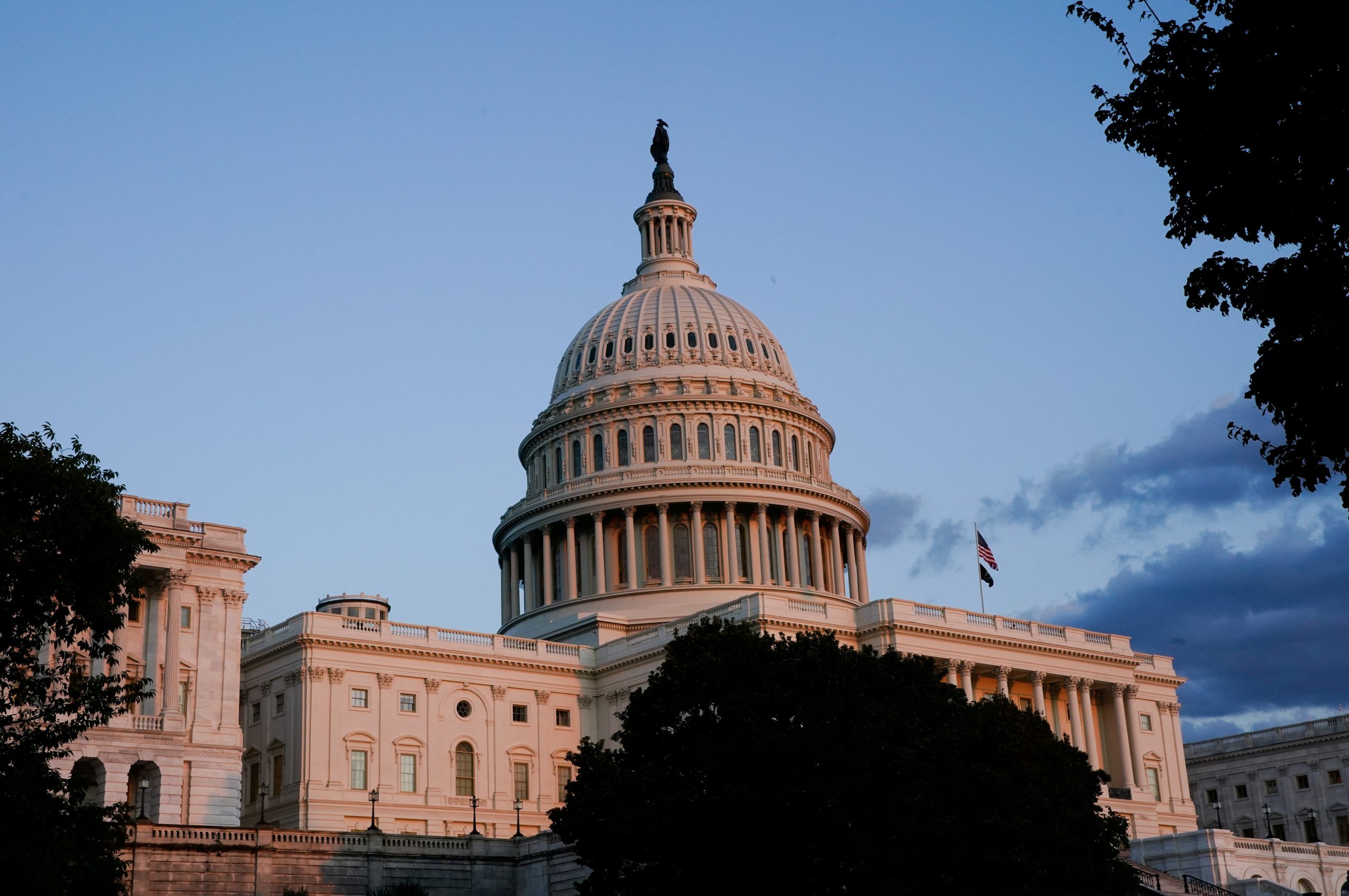
Megan Udinski, FISM News
[elfsight_social_share_buttons id=”1″]
Ahead of another Senate vote on raising the debt ceiling, moderate Democratic Senator Joe Manchin (W.V) came out in opposition to discussions swirling over whether Democrats should suspend filibuster rules to raise the debt ceiling.
President Biden had said on Tuesday that Democrats may make an exception to the Senate rules in order to allow them to pass a bill that would raise the limit without Republican support.
He asserted that raising the debt limit is about paying off old debts incurred under the Trump administration and not about new spending – such as his $1.2 trillion infrastructure plan and $3.5 trillion Build Back Better plan. Biden compared the Republican position to a meteor getting ready to crash into the economy saying, “They won’t vote to raise the debt limit to cover their own spending.”
When reporters asked about the prospect of moving forward by suspending the filibuster in order to deal with the debt limit, Biden said it was a “real possibility.”
Manchin, however, said that he would stand against even temporarily lifting the filibuster:
I’ve been very, very clear where I stand on the filibuster. I’ve been very clear nothing changes. We are not going to default as a country. We will not default.”
Manchin’s position essentially kills the idea that Democrats could avert either a compromise with Republicans or the arduous process of placing the legislation within the budget bill that they plan to pass through reconciliation:
Manchin has continually been an opposing force within the Democratic Party that would need his vote on essentially every partisan agenda items in an evenly split Senate. Manchin has blocked his party’s passage of the massive reconciliation bill, calling the $3.5 trillion dollar price tag “fiscal insanity.”
The process of reconciliation allows Congress to pass legislation on spending, taxes, and the debt limit using only a majority of votes by obtaining support by either 51 senators or 50 senators and the tie-breaking vote of the Vice President. Utilizing this technique would help the Senate Democrats bypass a filibuster which would require 60 votes to overcome, but Democrats have balked at including the debt ceiling suspension as part of the reconciliation process.
Progressive Democrats have eyed dropping the filibuster all together since January, but moderates, specifically Senators Kyrsten Sinema (Ariz.) and Joe Manchin (W.V.) have remained firm in opposing this.
Senate Majority Leader Chuck Schumer is expected to bring a vote on a stand-alone bill to suspend the debt limit on Wednesday afternoon for the third time. This legislation is expected to fail once again, as it would need 10 Republican votes to pass.
Senate Minority Leader Mitch McConnell remained firm in his position in a letter sent to the president, saying that since Democrats are choosing to go it alone in ramming through their agenda, than they must go it alone and finding a way to fund it:
Bipartisanship is not a light switch that Speaker Pelosi and Leader Schumer may flip on to borrow money and flip off to spend it. Republicans’ position is simple. We have no list of demands. For two and a half months, we have simply warned that since your party wishes to govern alone, it must handle the debt limit alone as well.
At a press conference on Tuesday, Mitch McConnell explained his position that the debt ceiling should be increased, but now needs to be done solely on the basis of the Democrats.
I said in July, August, September, and now in October: Democrats have a clear path to raise the debt ceiling. They have the tools and the time to use reconciliation. Democrats must do their jobs and stop playing Russian roulette with our economy. pic.twitter.com/9E4SBy41Vn
— Leader McConnell (@LeaderMcConnell) October 5, 2021
Sen. John Cornyn (R-Texas) affirmed McConnell’s sentiment by saying, “They basically want us to be aiders and abettors to their reckless spending and tax policies, and we just aren’t going to do it.”
Janet Yellen has repeatedly cried for Congress to address the debt ceiling prior to Oct. 17, at which point she claims that if it America could fall into an unprecedented default.
Secretary of Defense Lloyd Austin also released a statement on Wednesday, outlining some potential impacts of a debt ceiling default. He cites items such as the U.S. reputation as “a reliable and trustworthy economic and national security partner” and “the stature of the U.S. dollar as the global reserve currency of choice” as reasons for Congress to ensure that the nation “meet[s] its obligations” without defaulting on loans.
